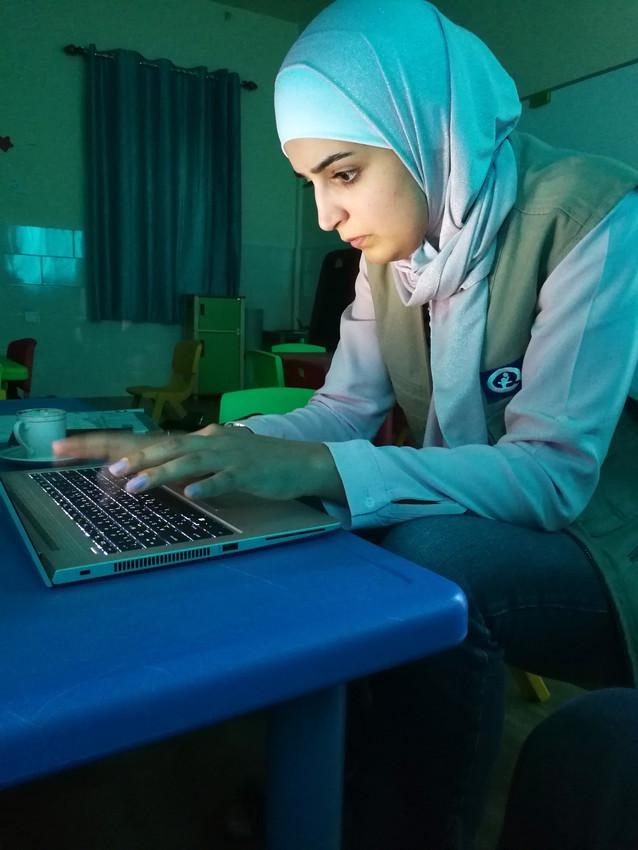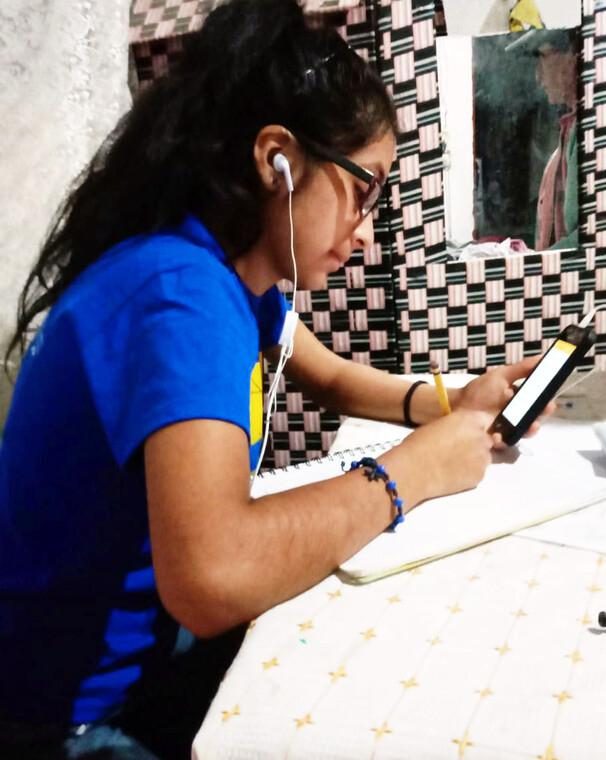This is the Future Girls Want – will world leaders listen?
Samikshya, aged 19 from Nepal demands more just and sustainable world where girls are heard in the lead up to the Summit of the Future.
We all love social media. For most of us, it’s part of our daily lives. In this global pandemic, with our lives increasingly moving online it’s how we connect to our friends. It’s essential for us to speak up and lead change.
However, it’s really important to recognise that the virtual world is a vast and unregulated space. Threats range from trolling to cyberbullying, stalking to threats in your DMs. So taking steps to protect your digital security is crucial.
We understand that knowing how to protect yourself online can seem overwhelming. So we’ve compiled some helpful resources to get you started.

Online violence or abuse is when an individual or group creates a hostile environment with the goal of shaming, degrading, intimidating or silencing individuals. Online abuse not only violates an individual’s right to live free from violence and to participate online, but also undermines their democratic and public engagement.
According to Luchadoras the most common forms of tech-related violence against women are:
Here is a list of organisations and networks from all over the world who are taking action against online gender-based harassment.
| GLOBAL ORGANISATIONS | AccessNow | Defending and extending the digital rights of users at risk around the world. |
| Association for Progressive Communication | Working to build a world in which all people have easy, equal and affordable access to the creative potential of information and communication technologies (ICTs) to improve their lives and create more democratic and egalitarian societies. | |
| Amnesty International | The global human rights organisation offers courses on digital security and online safety. | |
| Feminist Principles of the Internet | A series of statements that offer a gender and sexual rights lens on critical internet-related rights – available in several languages. | |
| Internews | Internews helps local communities use policy, technology, and data to access the information they need and make their voices heard. | |
| XYZ | XYZ is a space for practical tools to navigate digital security and privacy from a gender perspective, learn from each other’s activism, inspire one another and co-create. | |
| AFRICA | African Feminism | A pan-African feminists digital platform and collaborative writing project |
| Digital Society of Africa | Working to strengthen the resilience and ability of frontline activists; human rights defenders and other at-risk groups in the region to independently recognize and respond to digital threats and attacks. | |
| Women of Uganda Network | Promoting and supporting the use of ICTs by women and women’s organisations in Uganda, to help them effectively address national and local problems of sustainable development. | |
| ASIA | 7amleh | A non-profit NGO that aims to empower Palestinian and Arab civil society in digital advocacy, by building professional capabilities, defending digital rights, and building effective media campaigns. (In Arabic) |
| Gendering Surveillance by the Internet Democracy Project in India | Through research, advocacy and debate, the Internet Democracy Project works for an Internet that supports freedom of expression, democracy and social justice, in India and beyond. | |
| Hamara Internet | Empower women and girls to thrive in digital space and learn to defend themselves in an increasingly Internet-connected world. | |
| LATIN AMERICA | HackBlossom | A DIY guide to feminist cybersecurity. Fiercely dedicated to establishing a culture of safe, accessible, and enriching technology free from exploitation. |
| Luchadoras | Helping women, young people and girls live with joy and freedom both physical and digital spaces, aware of their strength and personal and collective potential. | |
| Minas Programme | Promoting programming learning opportunities for girls and women, giving priority to those who are black or indigenous. Challenging the gender and racial stereotypes that influence our relationship with science, technology and computing. | |
| Take Back the Tech | A global, collaborative campaign project that highlights the problem of tech-related violence against women, together with research and solutions from different parts of the world. | |
| US/EUROPE | European Women’s Lobby | Bringing together the women’s movement in Europe to influence the general public and European Institutions in support of women’s human rights and equality. |
| Fix the Glitch | Working towards ending online abuse and increasing digital citizenship. | |
| Hollaback | Working to end harassment in all its forms, offering training in harassment prevention and bystander intervention. | |
| Internet Society | Dedicated to ensuring that the Internet stays open, transparent and defined by you. | |
| Pen America | At the intersection of literature and human rights to protect free expression. |
Please note: Plan International is not responsible for the content of other sites.

The threats, abuse and attacks women experience online are real, harmful and directly linked to the broader issue of gender-based violence. Online harassment is a continuation of the discriminatory attitudes that lead to street harassment, and the broader inequalities that girls face in their societies.
The same patterns of silencing, intimidation, shaming, threats and violence that girls and women face offline are replicated by perpetrators online. Technology exposes girls and women to a wide range of harassment in addition to the harassment that they face on the street.
Online harassment is an issue that cannot be escaped or simply ‘turned off’. That’s why it’s vital we take steps to protect ourselves online. But girls can’t end online harassment alone – they need allies. They need social media companies to take the issue of online abuse seriously – improve reporting mechanisms and hold perpetrators to account.